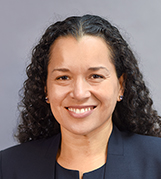Ultra-High-Net-Worth Individuals Should Prepare For the End of Privacy in Offshore Jurisdictions
Moves to limit privacy in key offshore centers – including the British Virgin Islands, Cayman Islands and Channel Islands – through the public identification of ultimate beneficial owners could bring unwarranted scrutiny to ultra-high-net-worth individuals with legitimate structures. Proper preparation can help individuals ward off these potential threats to their reputation and other interests.
January 4, 2024
The United Kingdom is pushing for its overseas territories – including offshore centers such as the British Virgin Islands, the Cayman Islands, Jersey and Guernsey – to begin publicly identifying the ultimate beneficial owners of corporate structures domiciled there. Consequently, ultra-high-net-worth individuals (UHNWIs) with a legitimate need for confidentiality could see their interests threatened by unwarranted scrutiny.
When everyone can dig through the databases, any misinformed, inaccurate or exaggerated allegations of wrongdoing could quickly gain traction. That could cause serious and unjustified harm to the UHNWI’s reputation and even attract the attention of aggressive government investigators.
Proper preparation can help UHNWIs and their advisors, not only take lawful pre-emptive steps to limit potential damage and protect their own and their families’ and associates’ legitimate personal and commercial interests and also react expediently and in a focused manner when a crisis arises.
- Start with the Facts. Public databases on beneficial ownership only provide part of the picture. At-risk UHNWIs and their advisors should proactively prepare a factual narrative that can help set the story straight. For example, these can include documentation that certain key assets were purchased using clean and traceable funds, evidence that wealth was earned through lawful business activity, trustees exercise independent judgment and control, and transactions were at arm’s length. UHWNIs can also consider working with legal counsel and public relations professionals to discuss options and begin engaging with journalists to develop trust and understanding.
- Monitor for Trouble. UHNWIs and their advisors can quickly deploy the factual narrative to point out and correct factual errors and misrepresentations if a potential allegation seems likely to become public. This should be handled in coordination with a legal strategy to ensure all the UHNWI’s interests are considered. Having legal advisors who can both help describe and explain the facts and correct misunderstandings and who have a deep understanding of asserting legal rights relating to reputation is also critical. In addition, UHNWIs should proactively identify where potential sources of trouble might originate, such as advocacy groups, business competitors or private individuals with axes to grind. Doing so will help develop applicable counterstrategies ahead of time.
- Correct the Record. UHNWIs should consider both in-court and out-of-court steps that can strengthen their legal cases and factual narratives if a controversy hits the public sphere. For instance, parallel legal proceedings to confirm and endorse the legitimacy of transactions and asset structures can create a powerful counterargument to media speculation. Submissions to due-diligence databases or, when necessary, international organizations like INTERPOL can help raise legitimate concerns regarding factual inaccuracies and other one-sided narratives. In a worst-case scenario, where global government investigators come knocking, having a fully briefed cross-border legal counsel team can be critical to responding to investigations and allegations.
Allowing confidential information to become accessible to anyone increases business, reputational and legal risks for UHNWIs. With confidentiality steadily eroding, at-risk individuals should work with legal advisors to prepare proactively to fight any misinformed or false allegations before they spiral out of control.
About Kobre & Kim
Kobre & Kim is a conflict-free firm with offices in 15 countries and territories. We focus on cross-border disputes and investigations, often involving serious allegations of fraud and misconduct.
Our team provides offensive and defensive cross-border litigation and crisis management strategies to UHNWIs with global business interests, to preserve their assets, liberty and reputation. Our capabilities include:
- Our global team includes roughly a dozen former U.S. and UK government lawyers spread across EMEA, Latin America, Asia and the U.S., including former prosecutors from the UK Serious Fraud Office (SFO) and U.S. Department of Justice (DOJ).
- Our industry-recognized experience in “[helping] businesses and successful individuals to understand and deal with the reputational and privacy issues that have the potential to put them in the spotlight,” according to Citywealth.
- Our onshore and offshore lawyers – including an integrated group of U.S. litigators, offshore lawyers qualified in key jurisdictions, Hong Kong solicitors, and English barristers and solicitors – helping clients identify vulnerable assets and mitigate reputational harm caused by investigations.
- Our ability to coordinate legal strategy and work closely with a range of stakeholders (including crisis communications and public relations firms) to formulate holistic strategies to preserve reputation and mitigate privacy concerns.








